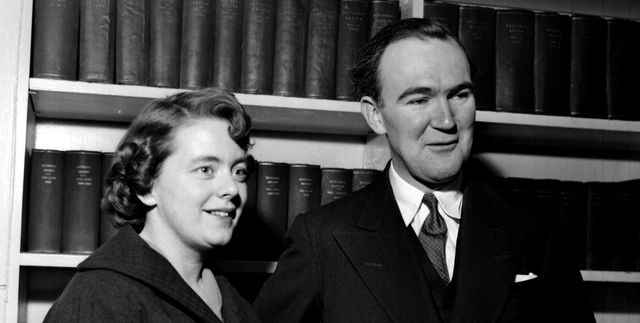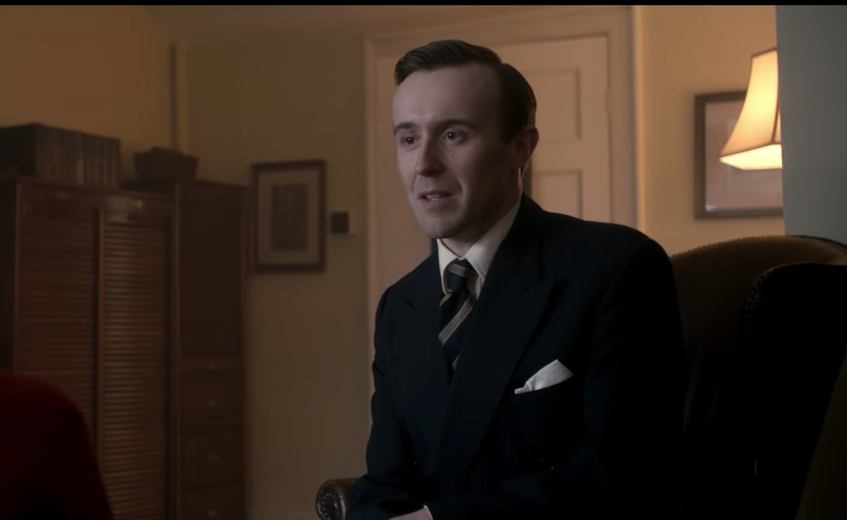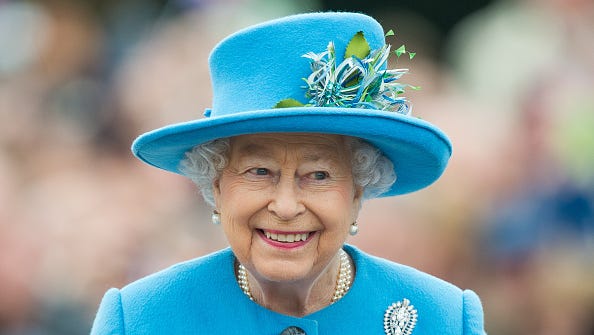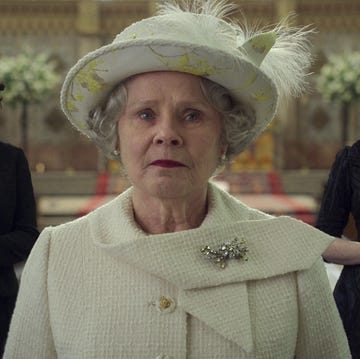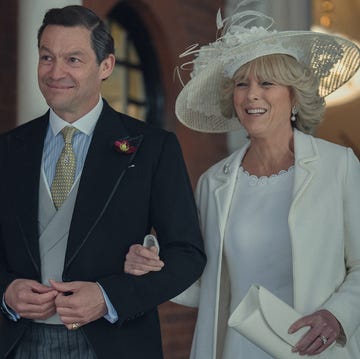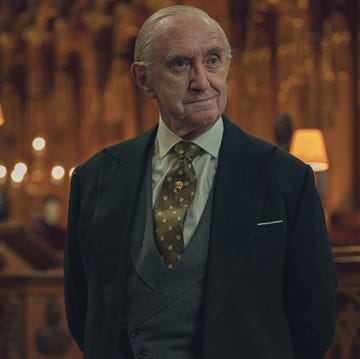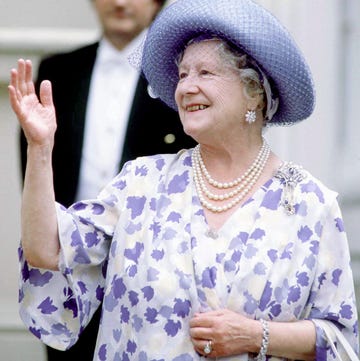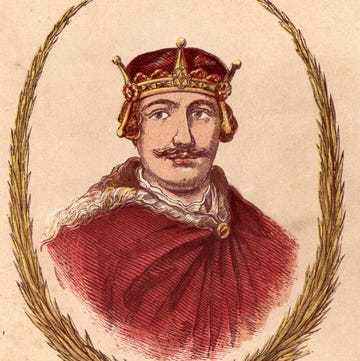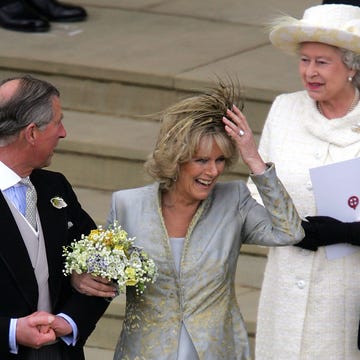The Crown's fourth season, Queen Elizabeth makes mention of Lord Altrincham, a man at the center of the plot of a previous season. Need a refresher on who he was as we head into season five? Read on for a story originally published in 2017.
How do you keep a stodgy, centuries-old institution like the British monarchy relevant? Maybe it's joining social media, or expanding the causes the royals champion—but 60 years ago, the royal family did some soul searching following very public dressing down by a prominent writer, the second Baron Altrincham.
Lord Altrincham (who was later known as John Grigg after he disclaimed his title in 1963) shook Britain when he suggested that the Queen and the courtiers who supported here were out of touch with her subjects, a controversy seen depicted in the second season of The Crown.
"I am very glad we’ve got this whole episode on Lord Altrincham, who is a well-known figure in England, and now will become so around the world," the show's historical consultant Robert Lacey told me, while promoting his book The Crown, The Official Companion.
In the show, we see Altrincham make his arguments in 1957, publishing his thoughts on Queen Elizabeth in his magazine, the National and English Review. He argued that she and her courtiers were too upper-class and removed from the common English citizen, and he criticized the Queen personally, calling her style of speaking "a pain in the neck" and saying she came off as "a priggish school girl."
It wasn't the first time Altrincham had shared his criticisms of the monarchy. "What is funny is that these criticisms is that he first made them in 1953. He aired these ideas at the time of the coronation, and nobody paid any attention, because that wasn’t the mood," said Lacey.
But by 1957, the national mood had shifted.
"It changed radically, partly because the shine of the new Queen had worn off, perhaps, but also because Britain had been through this trauma of the Suez Crisis, an arrogant military adventure overseas that ended in disaster, and caused a great deal of soul searching in Britain. Suddenly his ideas struck a chord."
But it wasn't just the nation's mood which had changed. There was a technological evolution as well.
In 1957, "Britain had just gotten its first independent television network. The BBC would not go near Lord Altrincham. They gave him no air time. But this new commercial network, gave him airtime."
It spread his perspective, and even earned him a slap in the face by a member of the League of Empire Loyalists, a group that argued that Britain should retain its empire. But despite the outcry he inspired, Altrincham wasn't a republican. He said he made his suggestions publicly to try and help the monarchy.
"The thing to say about Lord Altrincham was that he was a great monarchist. He wasn’t a republican when he criticized the queen. He was criticizing the fact that the queen and the old-fashioned courtiers were not serving the monarchy well in their style," said Lacey.
As the incident plays out on The Crown, the queen is deeply affected by his remarks.
“It’s a real point of change for her and a real point of weakness in her character,” actress Claire Foy, who plays Queen Elizabeth, said of the plot line. “She becomes very affected by how the public perceives her. That’s not something she’s ever had to deal with—being criticized—really. Suddenly to be criticized and have her voice and what she looks like become something that everyone’s talking about, that’s when she’s really vulnerable.”
Eventually, the monarchy did adapt most of Altrincham's suggestions. For example, the queen's Christmas addresswas televised for the very first time in 1957, and by 1958, debutantes were no longer presented to the Queen in court.
"[The story of Altrincham] fit in with the larger zeitgeist, and I think that’s the appeal of the series, and the book. It sets the monarchy in the historical context. In season two, we’ll be moving into uncharted territory: the national psyche. The changes that happened in our society, affluence, the consumer society, the way the world changes," Lacey said.
"Altrincham is an example of the monarchy falling behind. Because ultimately, the monarchy is only as good as the people doing the job. We’re very proud in Britain of our system, in distinguishing between the 'executive' that's the politicians and the dignified, that’s the queen. But sometimes as we see with Lord Altrincham, that gets out of step."

As the digital director for Town & Country, Caroline Hallemann covers culture, entertainment, and a range of other subjects
